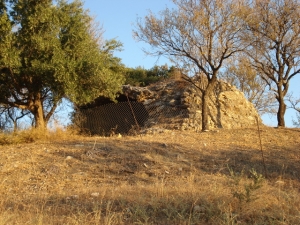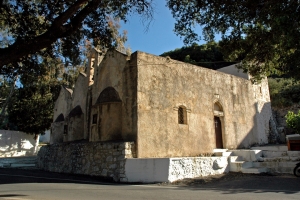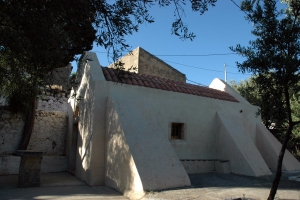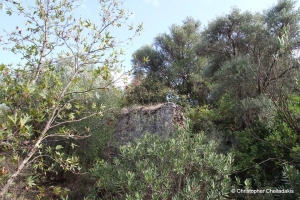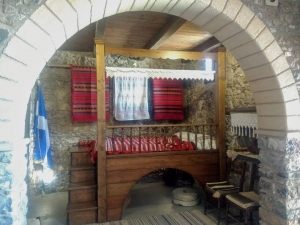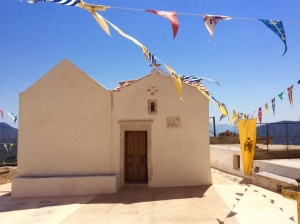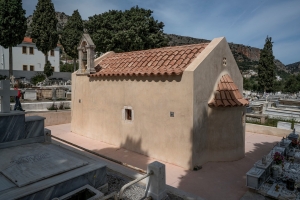Inside the Kritsa village, at position Ambela, we meet the ruins of a small medieval tower with one arch still standing. Apparently the tower was used for overseeing the crops of the region, but also for controlling the passage to Kritsa.
The settlement of St. John the Evangelist, whose core was the former monastic complex of the monastery of St. John, is situated between the villages Kritsa and Kroustas. According to local tradition the monastery was founded in the second Byzantine period and it is known that it functioned until the late 19th century.
The Kato (lower) St. George was founded in 13th century and is adjacent to another newer church of St. George. It is a small single-nave, barrel-vaulted church, with buttresses at the southern wall and its entrance on the west. The openings are adorned with stone reliefs of the time of the Venetian rule.
One of the most important churches used in the past for burying unbaptized babies is located by Kritsa, at position Koulbado. This temple is also very important as it is a single-aisle temple, probably built in the Byzantine Era (indicated by the typical ceramic bricks met in Byzantine churches).
The Historical and Folklore museum of Kritsotopoula's house is located in the village of Kritsa, at Mirabelo, in the original house of Rodanthi (Kritsotopoula), reviving her amazing story. The folklore exhibition includes objects from the everyday life.
The single-nave church of Saint George (Agios Georgios) Kavousiotis is located south of the village of Kritsa at position Kavoussi. Externally it retains an arcosolium, that is, an arched grave of the Venetian Era.
During the Venetian occupation, the double-aisled temple of Jesus Christ our Savior in Kritsa gave the name Christos to the neighborhood around, which was then considered a separate settlement, and operated as its cemetery. Here, the father of the legendary woman Kritsotopoula was a priest.
The single-nave church of Saint John the Baptist (Agios Ioannis) is located in the cemetery of Kritsa. Its interior was frescoed in 1359-1360 at the expense of Ioannis Skordilis and its pictorial program is retained fragmentary. We distinguish scenes from the Evangelical cycle, the life of Christ, and ten scenes from the life of John the Baptist.
- 1
- 2














_01(js)-350adba0a6.jpg)



















